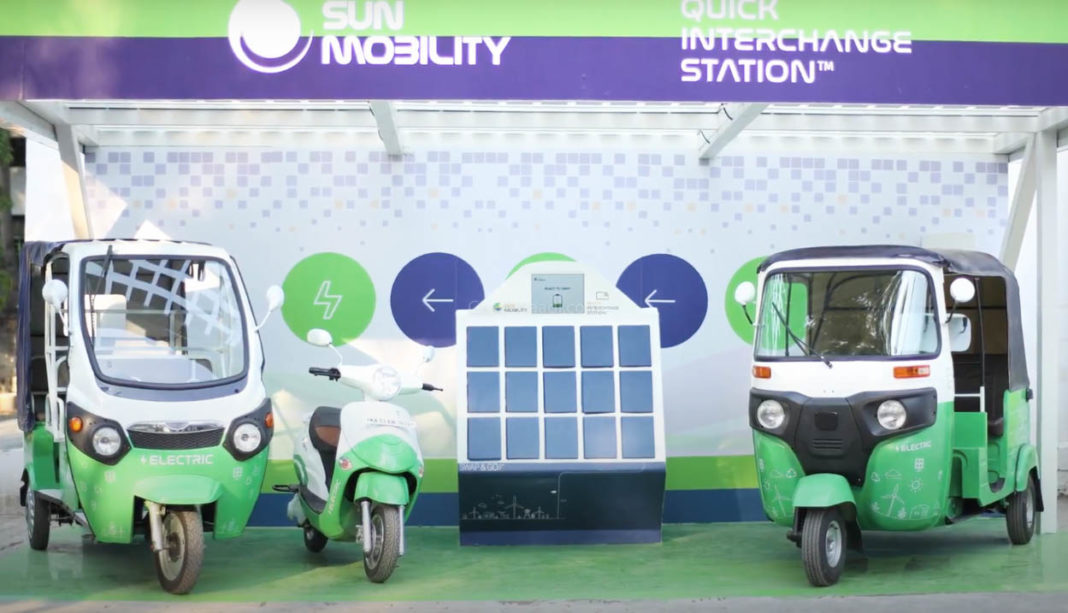
After the roll out of BSVI emission norms across the country. The Indian government seems to have further increased its focus and development and adoption of cleaner transportation
Recently, at a virtual launch event of a battery swapping station, Dharmendra Pradhan, oil minster, has said that while he’s happy about all the oil marketing companies joining hands to bring in the BS-VI fuels throughout the country, the time has now come to take another step forward and launch ground-breaking technologies in the transportation business.
In line with this, Indian Oil Corporation plans to set up battery swapping stations at some of its fuel stations after teaming up with SUN Mobility. The first battery swapping stations will be set up in Chandigarh. Pradhan also commented that in conjunction with Prime Minister Narendra Modi’s vision, adoption of electric mobility can help our country satisfy the conditions put forth by the Paris Agreement committee to reduce carbon emission intensity (emission per unit of GDP) by 33 to 35 percent of 2005 level over 15 years.
Speaking at the event, Chetan Maini, Co-Founder & Vice Chairman, SUN Mobility, said, “As India emerges from the lock-down, the focus should be on creating a conducive, collaborative EV ecosystem to make e-mobility take off in the country. IOCL’s extensive footprint – as the largest oil & gas corporation – will ensure that battery swapping infrastructure is accessible to customers at the same scale and ease as conventional vehicles.”
It should be mentioned here that the lack of a proper battery-charging infrastructure comes across as a major hurdle in the adoption of electric vehicles by the road users. As installing battery-charging stations is an expensive and time-consuming proposition due to high investment costs and requirement of several approvals from the authorities, battery-swapping can turn out to be a cost-effective solution for users of electric two- and three-wheeler users.
In a bid to encourage the purchase of electric vehicles, last year, the Government of India
earmarked Rs 10,000 crore to push the development, manufacturing and usage of electric vehicles through the Faster Adoption and Manufacturing of Electric Vehicles (FAME) scheme.
As per the much-publicized scheme, the Government has incentivised the purchase of 7,090 electric buses with an outlay of Rs 3,545 crore, 20,000 hybrids at a cost of Rs 26 crore, 35,000 four-wheelers with an investment of Rs 525 crore investment and 500,000 three-wheelers at Rs 2,500 crore.
